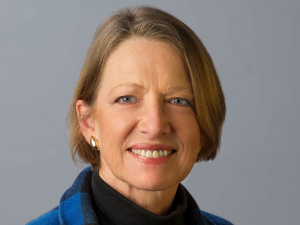OPINION: This is a call to action to all farmers who have worked on through Covid-19 difficulties, supporting the economy and contributing to recovery.
Your efforts have been noticed. Agriculture is being regarded more highly than it was at the beginning of the year. We have heard repeatedly that the primary sector is vital for economic recovery. But at the same time, regulations are increasing and misunderstandings are rife.
This is a call to make it clear that what is being suggested by environmentalists will limit our ability to contribute to economic recovery. This is a call to change in dialogue from ‘cost to us’ to ‘contribution to New Zealand’.
So, this is a call to calculate what dropping your stocking rate by 20% would mean to your bottom line.
Why?
Because of the ongoing statements that farmers can ‘get rid of 20% of animals and make more money while being better for the environment’.
Some media have questioned the statements with ‘surely if they could, they would – farmers aren’t stupid?’ We know that people in charge of businesses worth millions of dollars live and breathe their responsibilities; we do the calculations all the time – based on pay outs, schedules, interest rates and grass growth. Of course, we aren’t stupid.
But apparently the environmentalists and activists think we are.
The misconception has come from specific examples being applied to New Zealand in general.
“A Lincoln University farm has shown how a typical Canterbury dairy farm can maintain profitability with fewer cows, reduced nitrogen fertiliser use, and reduced supplementary feed.”
While it is true that Lincoln University dairy farm did reduce stock (by 26%) and inputs and make more money… it was not typical when reductions started. A high stocking rate (4.3 when the regional average was 3.3) has been reduced to what is now the average stocking rate for the region (3.4).
It is more ‘typical’ now – but removing more stock could jeopardise economic viability.
Calculations by another group on the Canterbury Plains indicate that a reduction of 6% would mean no funds for reinvestment in technology or environmental improvement.
There are also statements that ‘farmers who cut chemical inputs, introduce longer grazing rotations, and milk once a day can see an increase in organic matter in soil, which makes farms more resilient to drought’. This pushes towards ‘regenerative agriculture’ and, again, data are not presented with no clue given about the starting point for ‘more’.
New Zealand soils have, on average, two to three times more organic matter than America or Australia where regenerative agriculture has been promoted. Furthermore, the New Zealand system is geared towards pasture utilisation and pasture quality. Longer grazing rotations jeopardise optimal pasture quality.
Using your starting point, what would a decrease in stocking rate mean?
Publicly available data from the DairyNZ Economic Survey for the 2018/2019 season indicate that for farmers in the top 25% of performance, a 20% decrease in cow numbers would reduce milk solids by 27% and profit per hectare by 50%. These data are supported by the modelling that was done by DairyNZ for the Essential Freshwater submission: reducing stock numbers means a reduction in milk production and a reduction in contribution to the economy.
Australian data comparing dryland sheep operations reported that regenerative operations on average contributed a quarter of a million Australian dollars per year less than conventional operations.
People more concerned about the environment than the economy can be reassured that New Zealand farmers are good and getting better all the time. Our indicators per unit of production, including organic matter, are better than other developed countries. Our economy might be better as well – but won’t be if the primary sector contribution is halved.
People in Wellington, most of whom don’t run businesses and have no experience of the complexities of farming, need our help. Now is not the time to constrain what we are doing – so, do the calculations on stock numbers, and let’s get the information out there.
• Dr Jacqueline Rowarth is a farmer-elected director for DairyNZ and Ravensdown. The analysis is from publicly available data and the comments are her own. This email address is being protected from spambots. You need JavaScript enabled to view it.



















